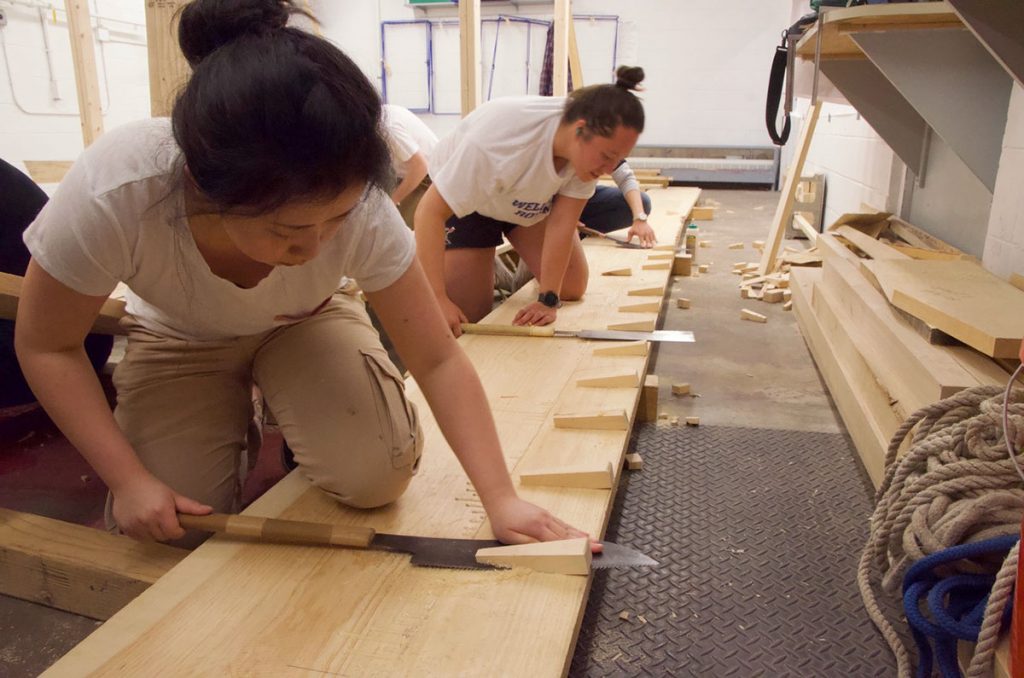You may have heard about our new boatshop course—Japanese Boat Building with Douglas Brooks, August 24-28—but you may not have heard about what an incredible opportunity this is.
In Japan, design and boat building techniques are well guarded and not written down, meaning the only way to truly learn from the masters is to apprentice. Douglas Brooks, instructor of our new Japanese Boat Building course, has apprenticed with seven masters throughout Japan (seven!) and is the only person to have apprenticed with six of the seven, positioning him as the only person in the world with this experience. His work has been honored by the Japanese Ministry Craft Council, and he is the author of four books on Japanese boat building.
Through Douglas we are able to offer an extremely rare opportunity to build a traditional Japanese river boat.
Excerpt from Douglas’s class description:
The course will also expose students to apprentice-style learning. At the outset of all of my apprenticeships in Japan my teachers told me the one all-important rule: there would be absolutely no speaking in the workshop. This is a hallmark of Japanese apprenticeships throughout the crafts. The apprentice is forced to learn by observation. For most students the idea of a completely silent classroom comes as a shock. Students are used to education as externalities: a professor or expert telling them the facts from a lectern, then expecting them to creatively regurgitate those same facts back to them. Overall the western learning model seeks maximum efficiency.
In contrast, the Japanese apprenticeship is first and foremost an internal process. The student is required to develop values of patience, observation, humility, obedience and perseverance. Only then do they have the means to learn from the master. It is, at root, a values-based education, one that conforms to Buddhist principles of Zen Monastic training.
Understanding the beauty of this unique class, we wanted to extend the experience into this year’s Wooden Boat Festival. You’ll find a Japanese theme inside the Boatshop; the Japanese river boat will be on display surrounded by Japanese tool exhibitors, a planing contest, Japanese models, and more. Several presentations are planned, and we’ll culminate the weekend on Sunday with Taiko Drumming at noon at Bar Harbor, followed by the Shinto boat launching.
About the launching (excerpt from class description):
Shinto is the native religion of Japan, and typically described as animist. In brief, Shintoism is the ritual worship of a spirit – called kami – that pervades all things animate and inanimate.
Various shrine objects are used, including mocha (rice cakes) and sake (rice wine). Essentially the ceremony is an act of purification: of the boat and even the boatbuilders. A priest can conduct the ceremony, but most often these ceremonies are led by the boatbuilders themselves.
All ceremonies have a local flavor, based on traditions of the region or even an individual town. In some ceremonies a small shrine is placed on the boat. Often this is no more than a mortise in which significant objects are places. Once the boat is in the water it may be rowed in particular motions signifying good luck. After the ceremony often gifts are thrown to spectators usually candy or small crackers.
There are still two spaces available for this course offered August 24-28. Sign up here. For more in depth Wooden Boat Festival stories and updates, sign up for our Festival news list here!
